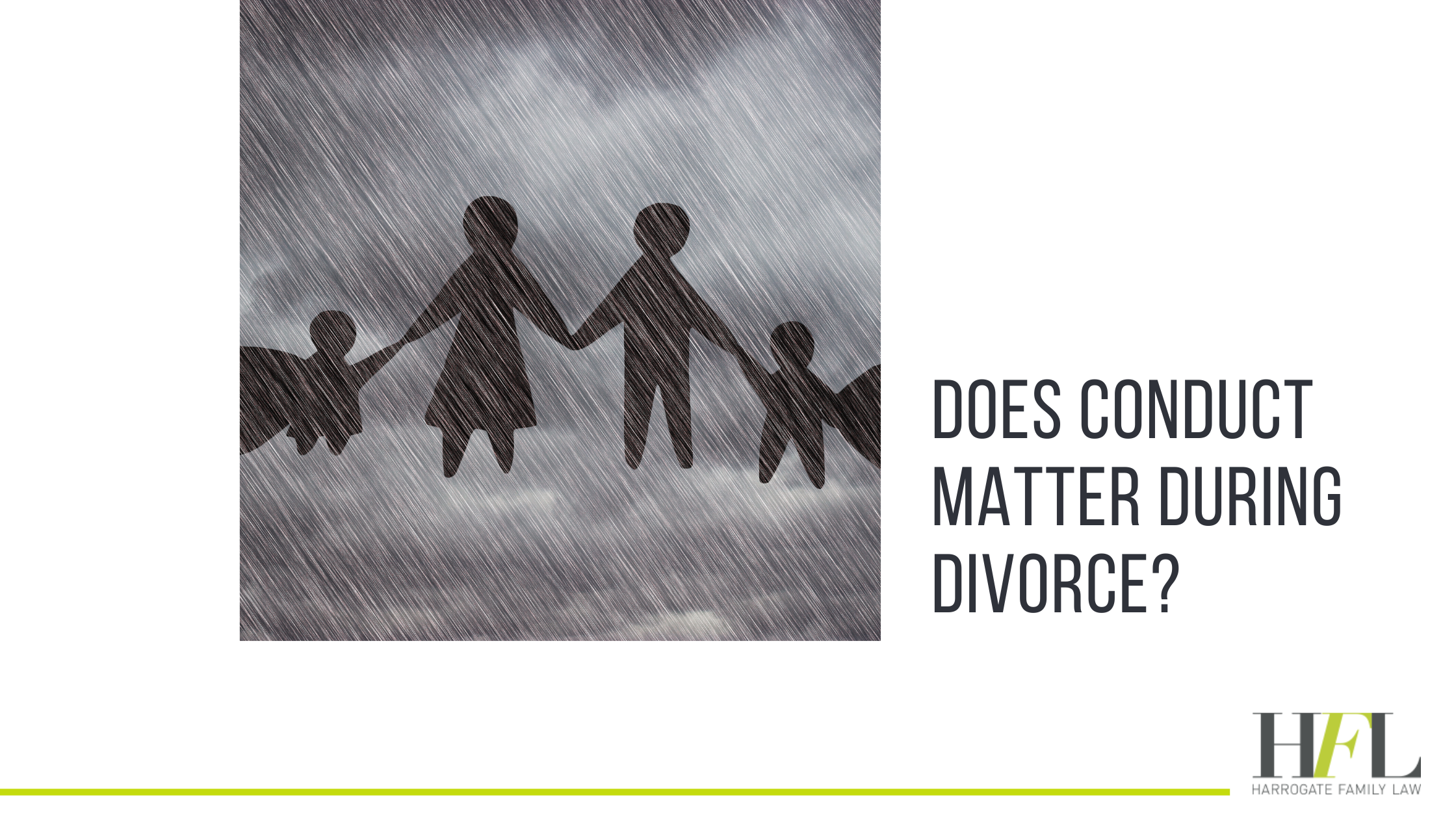As a family law firm, this is a question we get asked a lot. It can be very hard for clients who feel that they’ve been treated badly or unfairly to understand that in the majority of cases, the negative conduct of their spouse has no bearing on the outcome of their divorce.
So, what does the law say about conduct? And is it ever taken into consideration?
What is the law on conduct?
Of course, if you’ve been on the receiving end of unpleasant treatment on the part of your spouse, it’s only natural for you to want some level of, for want of a better word, ‘retribution’. But this isn’t how the law works.
Under section 25 of the Matrimonial Causes Act 1973:
‘Bad behaviour or conduct by the other party will only be considered in very exceptional circumstances when deciding how assets should be shared after divorce/dissolution.’
This means that negative conduct simply won’t be accepted as reason enough for either spouse to be granted a bigger share of the marital finances. And it goes further than this. The bar for what constitutes ‘exceptional circumstances’ is set very high.
When is conduct relevant?
You’re probably getting the picture that for misconduct to be considered by the court as relevant, it needs to be incredibly serious. This might include:
- Excessive reckless spending or gambling.
- Domestic violence that involves significant harm impacting earning capacity.
- Engaging in illegal activities such as fraud.
A relatively recent example of marital misconduct being considered during a divorce is the case of T v T [2020]. Here, a husband kept a secret second family from his wife for 13 years of their marriage, hidden abroad in Moscow.
With regard to the above example, it’s important to bear in mind that these really were exceptional circumstances. In addition, there were other considerations including non-disclosure, overseas assets and significant wealth. Such cases are not the norm and even in this example, the judge was keen to avoid establishing what he called a ‘cheat’s charter’, with the focus still being very much on the needs of the parties.
What about adultery?
Another very common misconception is that adultery on the part of your spouse will have some bearing on the outcome of your divorce. Whilst it might seem unfair, this simply is not the case.
The introduction of the no-fault divorce is a clear indication of this. Now, couples don’t need to provide an explanation or evidence in respect of the breakdown of their marriage in order to be granted a divorce. As such, adultery can no longer be raised as an issue.
Adultery is a very emotive subject. And it’s understandable to feel wronged by a partner if they’ve been unfaithful. However, given that the issue of adultery never made any difference to the outcome when it comes to a fair financial settlement or arrangements for the children, there was no benefit at all to the previous law governing divorce.
If you’re unsure whether you have grounds to claim unreasonable conduct, or uncertain about how to proceed with your divorce, our expert team is here to answer any questions you might have. With years of experience helping our clients to reach the best possible outcome, and with expertise in high net-worth cases, we can help you understand where you stand. Get in touch with us today.






